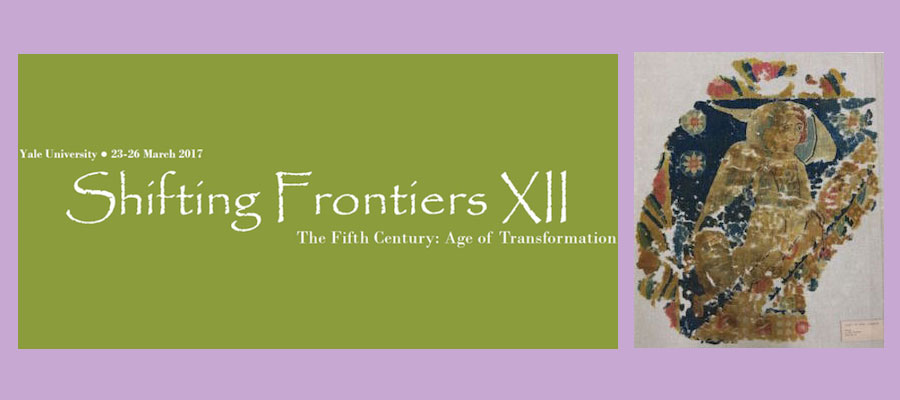Shifting Frontiers in Late Antiquity Twelfth Biennial Conference: The Fifth Century: Age of Transformation, Yale University, March 23–26, 2017
The Society for Late Antiquity announces that the Twelfth Biennial Conference on Shifting Frontiers in Late Antiquity will be held at Yale University on the topic of “The Fifth Century: Age of Transformation.” The conference will be cosponsored by the University of Groningen.
In chronological terms there can be little doubt that the fifth century is the pivot point of Late Antiquity. It is arguable that it also represents the major watershed between a monolithic world still dominated by the Roman Empire in the third and fourth centuries and the more tessellated worlds of the sixth and seventh. Whereas the fourth century is still very much an age of continuity with the earlier empire, the fifth can rightfully be viewed as the moment when Mediterranean Eurasia and North Africa witnessed profound political, social, religious, economic and cultural transformations. Shifting Frontiers XII seeks to investigate the nature and impact of these changes. We are particularly interested in six areas of research which reflect this transformational trend.
- Shifts in the archaeological and material record: archaeology of the frontier; art and power; spoliation, collectionism, preservation
- State formation, re-formation, transformation: emperors, kings, rulers; law codes; new loci of political power – desert and steppe
- Transformations in religious authority: east and west – tension and cooperation; traditional religion; notions of the divine; popular practice
- Changes in climate, environment, geography: demography, disaster, microclimates / macroclimates; resource allocation
- Literary transformations: epitomes, canons, excerpts; commentary; vernacular literature (Syriac, Coptic, Armenian, Georgian); translation / transcription
- Identity transformation: ethnicity and identity; gender and sexuality; uses of alterity – etic and emic
As in the past, we intend for the conference to provide an interdisciplinary forum for historians, archaeologists, and specialists in religious studies, near-eastern or Asian studies, and scholars of Greek, Latin, Syriac, Coptic, Georgian, Armenian, Persian , and Ge’ez literature. The conference should open a forum for the exploration of intersections between the world cultures of Europe, Asia, and Africa and the ways in which these peoples and places collided and were recombined to launch the global Middle Age.
Proposals should be clearly related to the theme of the conference and one of the above areas of research, and should state clearly both the problem being discussed and the nature of the new discoveries, insights, or conclusions that will be presented.
